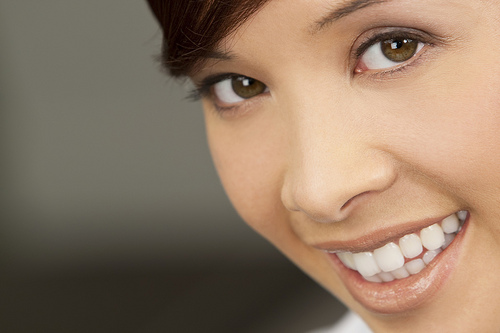October 6th, 2017

Your regularly scheduled dental checkups with Dr. Dale Scharine and Dr. Alissa Edwards are not just meant to make your smile prettier and healthier. Your mouth’s health has an important impact on your overall physical health as well!
While you may brush your teeth twice a day and even floss, we would like to remind you that dental checkups with Dr. Dale Scharine and Dr. Alissa Edwards every six months aren’t just about addressing problems and reacting, they are about cavity and gum disease prevention.
In addition to a twice yearly thorough teeth cleaning and polishing at Elite Smiles Dental, these regular visits help us detect and prevent the onset of tooth decay and gum disease. During your visit, we’ll check the health of your mouth, teeth, gums, cheeks, and tongue. We’ll also check old fillings and restorations, as these can wear away over time from constant chewing, grinding, or clenching.
It’s important to know that the majority of dental problems do not become visible or painful until they are highly advanced. And, unfortunately, serious oral issues are painful and expensive to treat.
While Dr. Dale Scharine and Dr. Alissa Edwards and our team always strive to provide unmatched dental care for you and your family, we are also committed to your overall wellness as well! A deep cleaning twice a year is the best way to prevent any problems that may have gone unseen. If you are overdue for your next cleaning, please give us a call to schedule an appointment at our Appleton, WI office!
September 29th, 2017

Our team at Elite Smiles Dental recently learned that in the decade between 2000 and 2010, the amount of adults who regularly visited their dentist declined, according to research released by the American Dental Association's Health Policy Resources Center (HPRC). In fact, the HPRC found that the percentage of adults who had regular checkups every six months declined from 41 percent in 2003 to 37 percent in 2010. The largest decline in dental care occurred in the 35- to 49-year-old age group. That’s down from 43 percent in 2003 to just 38 percent in 2010.
There is some good news, however. While adult visits may have decreased, children's visits were on the rise, particularly among low-income families. More low-income children are visiting the dentist now than they were ten years ago. And the HPRC notes that between 2000 and 2010, dental visits among low-income children increased in 47 states.
Have you ever wondered why the American Dental Association and Dr. Dale Scharine and Dr. Alissa Edwards recommend that you come in for a dental checkup and cleaning every six months? While daily oral hygiene habits are essential to good oral health, professional dental cleanings at Elite Smiles Dental ensure your and your child’s teeth are treated to a deeper level of cleaning. In addition to a thorough cleaning and teeth polishing, regular visits at our Appleton, WI office help us detect and prevent the onset of tooth decay and periodontal (gum) disease. During your visit, we’ll check the health of your mouth, teeth, gums, cheeks, and tongue for symptoms of any oral disease. We will also check old fillings and restorations, as these can wear away over time from constant chewing, clenching, or grinding at night.
If you are predisposed to oral diseases due to age, pregnancy, tobacco use, or medical conditions such as diabetes or dry mouth, Dr. Dale Scharine and Dr. Alissa Edwards may recommend you visit our office more often than every six months.
If you are overdue for your next checkup and cleaning, please give us a call to schedule an appointment!
September 22nd, 2017

As the field of dentistry advances and the use of technology in the field increases, the concept of minimally invasive dentistry has emerged. Preservation of a healthy set of natural teeth for each patient should be the objective of every dentist. Minimally invasive dentistry is characterized by the following core beliefs:
- Regard original tissue as more valuable than its artificial counterpart.
- Preserve, rather than replace, original tissue.
- Focus on the prevention of disease above its treatment.
- When treatment is necessary, use invasive means as little as possible.
Prevention
- Prevention begins with good oral hygiene.
- Dental caries are considered an infectious disease.
- Early detection of caries and other diseases can prevent the spread of infection and, consequently, further damage to healthy tissue.
- Infection control can reduce the incidence of restoration practices by as much as 50 percent.
- Focus on remineralization of enamel and dentin as a preventive effort in treating caries.
Preservation
Our team at Elite Smiles Dental will tell you the goal of minimally invasive dentistry is to preserve as much original tissue as possible. The preservation of original tissue leaves a tooth stronger in structure than one which has been modified through invasive measures.
When a restoration, such as a filling, must be made to a tooth, a greater amount of healthy tooth tissue than actual decayed tissue is often removed. An estimated 50 to 71 percent of the work a dentist completes involves repair or replacement of previous restorations. The use of durable restoration materials decreases the need for later repair or restoration work.
Treatments
Tooth tissue can be preserved at a greater percentage through the use of innovative adhesive materials. Glass ionomer cements release minerals into the surrounding tooth tissue and help prevent future cavities. Resin-based composite and dentin bonding agents are designed to bond to the enamel and preserve it.
New technology and the invention of small, hand-held tools allow for a less-invasive form of restoration. One such form is air abrasion, a technique that involves using powerful air pressure to direct aluminum oxide particles toward the tooth, which results in a gentler, less-damaging cut to the tooth.
For more information about minimally-invasive surgeries, or to schedule an appointment with Dr. Dale Scharine and Dr. Alissa Edwards, please give us a call at our convenient Appleton, WI office!
September 15th, 2017

Nobody likes bad breath, and although it can sometimes be difficult to tell if you have it, it is always better to practice good oral health than risk having a smelly mouth. There are many ways to reduce or eliminate bad breath, some are definitely more effective and longer lasting than others. Check out ways to do so below.
Floss Regularly
As difficult as it can be to remember to floss regularly, when it comes to bad breath, flossing is one of the easiest and most cost effective ways to freshen your mouth. See, flossing reduces the plaque and bacteria found in areas of your mouth that a toothbrush simply can't reach, and in turn, it rids your mouth of the smell associated with that bacteria. While flossing may not eliminate bad breath on its own, if you do it along with other health oral hygiene habits like brushing, then you may just develop a fresher smelling mouth.
Use Mouthwash
Using some sort of mouthwash can really freshen up your breath, especially if you find it still smells after brushing and flossing. There is a wide variety of mouthwash products on the market, however, you can also create your own by simply using baking soda mixed with water.
Always Brush after You Sleep
Whether after taking a nap, or having a full night of sleep, you will want to brush your teeth in order to reduce bad breath. The truth is, bacteria accumulates in your mouth while you are sleeping (even during a short nap) and that is ultimately the source of bad breath. So next time you wake from a good slumber, give your mouth some brushing and you will find it makes a big difference in the freshness of your breath.
There are many ways to freshen your breath beyond just using gum or mints, the above mentioned are just a few for you to try. Test them out and you will likely find your bad breath problem is solved, or at least considerably reduced. Of course, you can always ask Dr. Dale Scharine and Dr. Alissa Edwards at your next visit to our Appleton, WI office.





 Website Powered by Sesame 24-7™
Website Powered by Sesame 24-7™